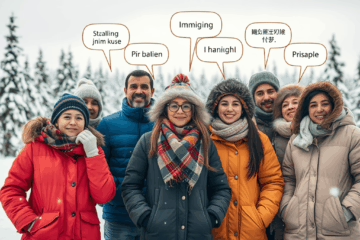Canada has long been recognized as a beacon of hope for those fleeing persecution, conflict, and dire circumstances in their home countries. With its robust legal framework and commitment to international human rights, Canada offers a range of rights and services to refugees who seek safety within its borders. This article delves into the essential aspects of refugee rights and the services available to them, with a particular focus on navigating these services with the help of a Vancouver lawyer.
Table of contents
Understanding Refugee Rights in Canada
Refugees in Canada are afforded a variety of rights that align with international human rights standards. Upon arrival, they have the right to seek asylum and are protected under the Canadian Charter of Rights and Freedoms, which ensures fundamental freedoms and equal protection under the law. This includes access to essential services like healthcare and education, as well as the right to work and the opportunity to apply for permanent residency. Canada’s Immigration and Refugee Protection Act (IRPA) further solidifies these rights, providing a legal framework that safeguards the dignity and security of refugees.
Moreover, Canada is a signatory to the 1951 Refugee Convention and its 1967 Protocol, reinforcing its commitment to providing protection to those who qualify as refugees. This means that refugees cannot be returned to a country where they face serious threats to their life or freedom. Additionally, Canada has implemented a private sponsorship program, which allows citizens and organizations to support refugees financially and socially. This unique approach not only facilitates the integration of refugees into Canadian society but also empowers communities to play an active role in offering refuge and support.
Navigating Services with a Vancouver Lawyer
Navigating the complex landscape of refugee rights and services in Canada can be a daunting task, particularly for those unfamiliar with the legal system. In Vancouver, lawyers who specialize in immigration and refugee law offer invaluable assistance to refugees seeking to understand and assert their rights. These legal professionals provide guidance on the application process for asylum, ensuring that all necessary documentation is completed accurately and effectively. Their expertise is crucial in helping refugees present a compelling case for their protection needs, improving the likelihood of a favorable outcome.
In addition to aiding with asylum applications, Vancouver lawyers assist refugees in accessing the myriad of services available to them. From healthcare and housing to employment and education, these lawyers help refugees navigate the system to maximize the benefits they are entitled to receive. By offering legal representation and advice, lawyers ensure that refugees can overcome barriers and fully exercise their rights in Canada. This support is vital not only for the immediate well-being of refugees but also for their long-term integration and success in Canadian society.
Canada’s approach to refugee rights and services exemplifies its commitment to humanitarian values and international obligations. By providing a comprehensive legal framework and a range of services, Canada ensures that refugees have the opportunity to rebuild their lives in safety and dignity. Vancouver lawyers play a crucial role in this process, guiding refugees through the legal landscape and helping them access the benefits they are entitled to. As Canada continues to welcome those seeking refuge, the collaboration between legal professionals and community organizations remains pivotal in fostering an inclusive and supportive environment for all.
This blog is not intended as legal advice, please consult a lawyer regarding your questions for immigration.
Frequently Asked Questions
A: Refugees in Canada have rights under the Canadian Charter of Rights and Freedoms, including access to healthcare, education, and the right to work. They are also protected from deportation to countries where they may face harm.
A: A Vancouver immigration lawyer helps refugees understand their rights, assists with asylum applications, and provides guidance on accessing services like healthcare, housing, and education.
A: Yes, refugees are eligible for healthcare services upon arrival in Canada, as part of their rights under Canadian law.
A: Refugees can apply for permanent residency through programs like the Protected Persons program, with guidance from immigration professionals to help navigate the process.
A: Yes, Canada allows private citizens and organizations to sponsor refugees, providing financial and social support to help them integrate into Canadian society.
A: Canada follows the definition outlined in the 1951 Refugee Convention and 1967 Protocol, which includes individuals fleeing persecution, conflict, or threats to their life.
A: Yes, refugees have the right to work in Canada once they receive their work permit as part of their protected status.
A: The IRPA provides the legal framework ensuring the safety, dignity, and rights of refugees seeking protection in Canada.
A: The Refugee Convention defines the rights of refugees and the obligations of nations to protect them. Canada is a signatory to this convention.
A: Refugees should understand their rights, eligibility, and the necessary documentation for a successful application, often with assistance from legal professionals.
A: Yes, there are housing services available for refugees, and lawyers often assist refugees in accessing these resources.
A: Refugees have access to public education for school-age children, and there are additional programs to support language learning and skill development.
A: Lawyers ensure the application process is completed accurately, increasing the chances of a successful asylum claim in Canada.
A: Under certain programs, refugees may be able to sponsor immediate family members to join them in Canada.
A: This agreement between Canada and the U.S. requires refugees to apply for asylum in the first safe country they enter, unless certain exceptions apply.
A: Yes, under the 1951 Refugee Convention, Canada cannot deport refugees to countries where they face serious threats to their life or freedom.
A: Refugees may face language barriers, navigating complex processes, and financial challenges. Legal support can help alleviate these difficulties.
A: They offer assistance with asylum applications, access to social services, employment rights, and pathways to permanent residency.
A: Yes, mental health services are available to refugees, and lawyers can guide them in accessing these resources.
A: Refugees may qualify for social assistance, including financial aid, housing, and healthcare, to support their integration and well-being.
A: Canada’s commitment includes legal protections, service access, and community support to help refugees rebuild their lives safely.
A: Yes, interpreters are often available in legal and social services settings to assist refugees who speak limited English or French.
A: Private sponsorship provides both financial and social support, helping refugees to integrate smoothly into Canadian society.
A: While not mandatory, legal representation significantly improves the chances of a successful refugee claim and helps ensure full rights access.
A: Yes, children of refugees have the right to free public education, helping them integrate and build a future in Canada.
A: Community organizations provide essential support, including housing, education, and cultural integration services for refugees.
A: Yes, Canada’s anti-discrimination laws protect refugees, and lawyers can offer assistance if they face any form of discrimination.
A: Refugees are encouraged to connect with legal professionals, community organizations, and government resources to stay informed.
Discover more from Pax Law Corporation
Subscribe to get the latest posts sent to your email.



0 Comments